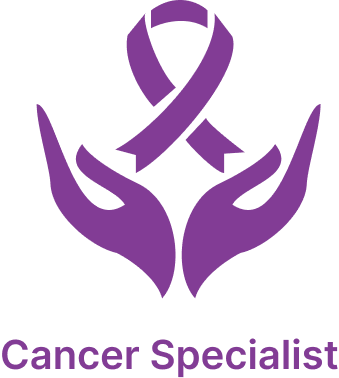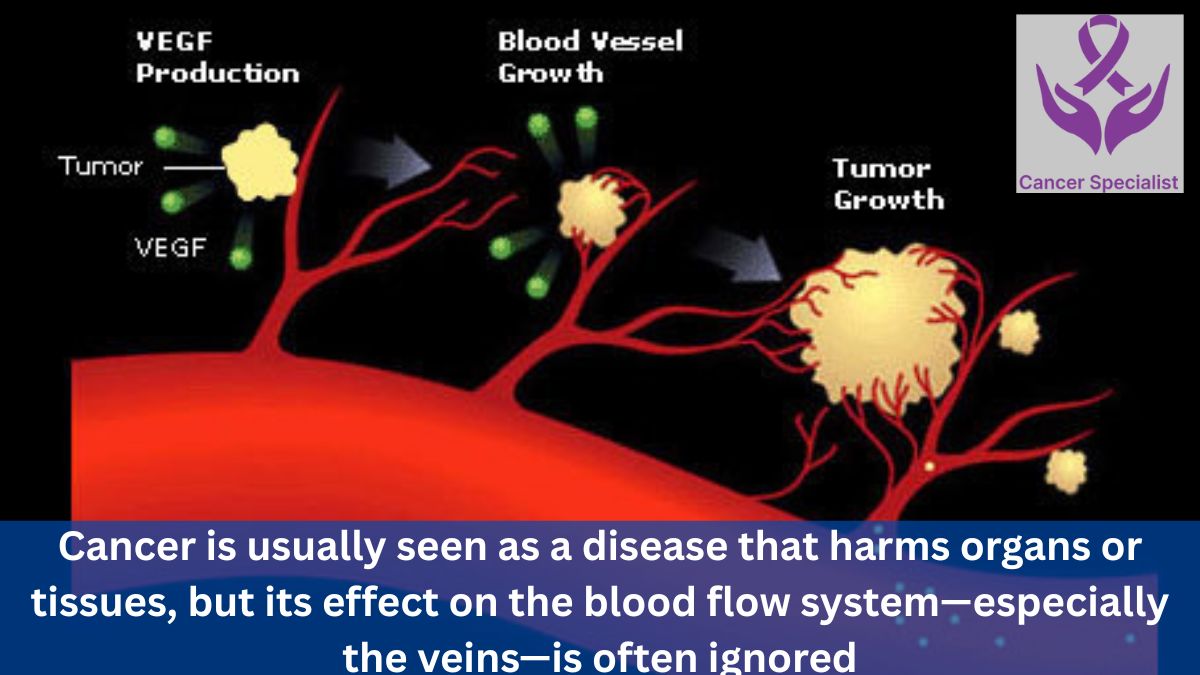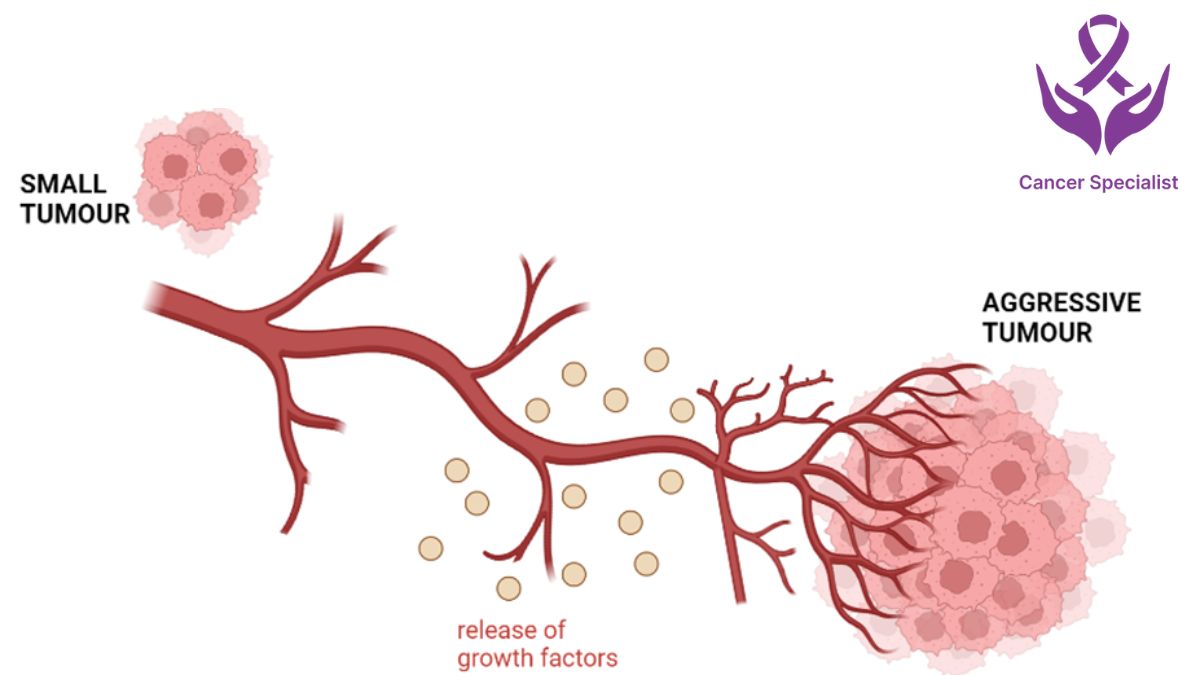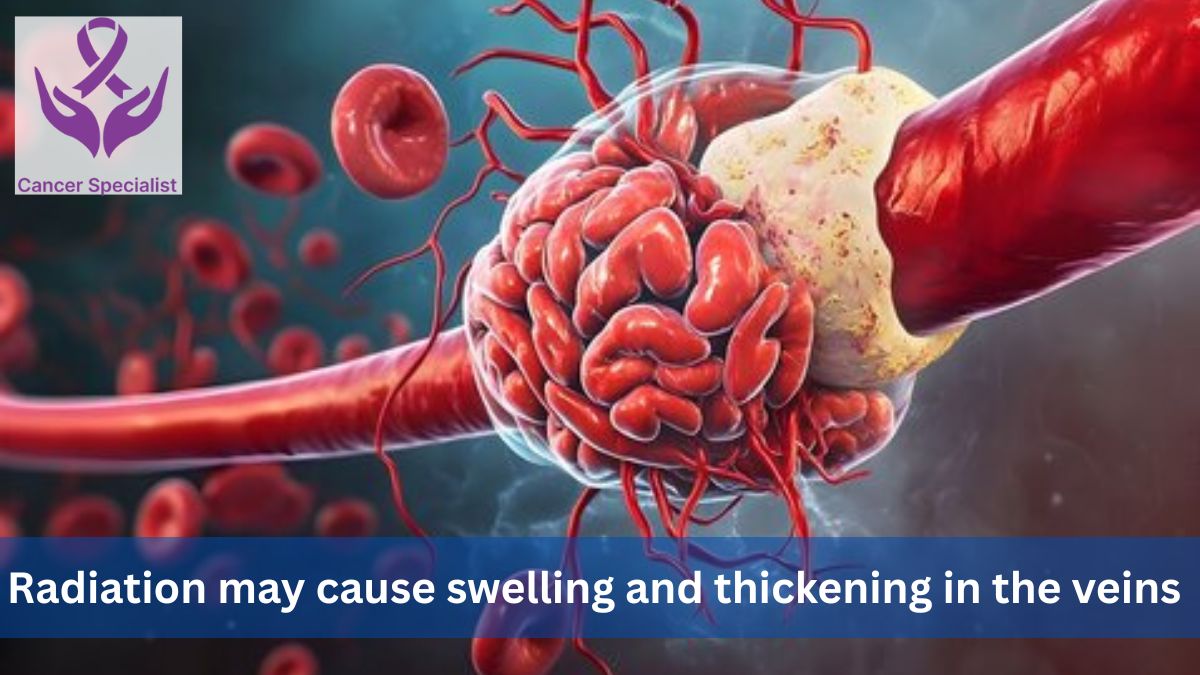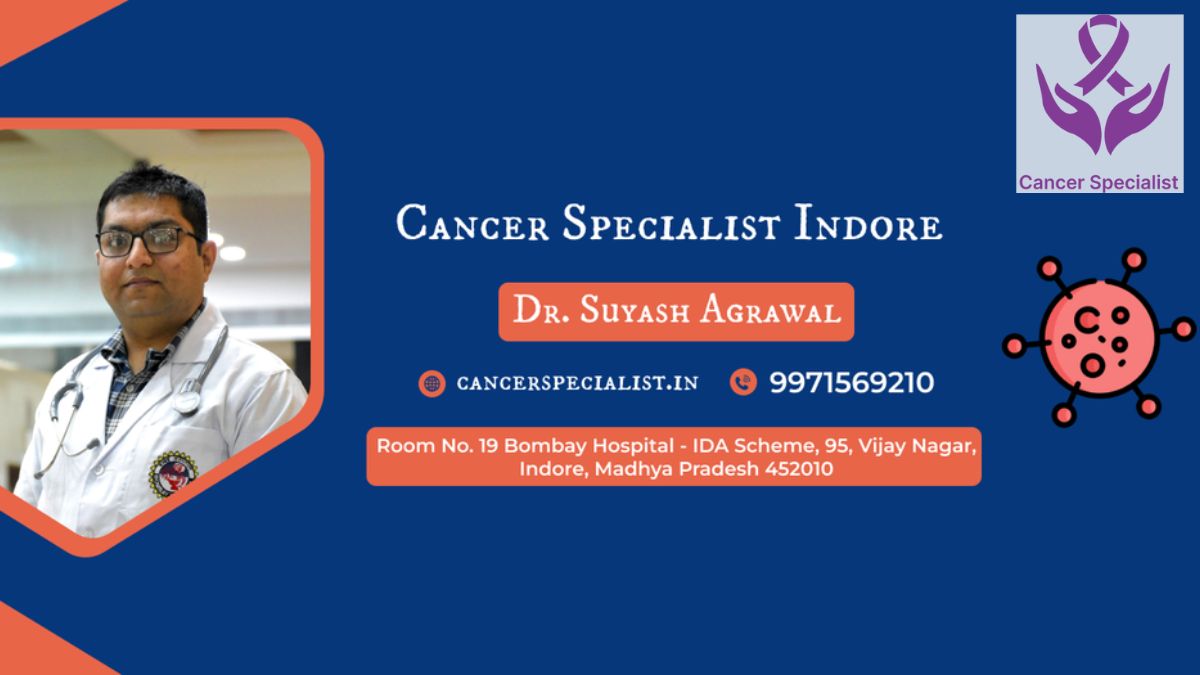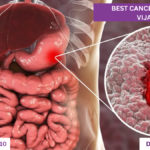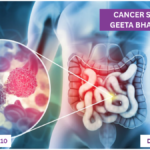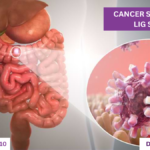Cancer is usually seen as a disease that harms organs or tissues, but its effect on the blood flow system—especially the veins—is often ignored. Veins play a key role in carrying oxygen-poor blood back to the heart. When cancer affects this system, it doesn’t just cause pain—it can also lead to serious, sometimes life-threatening problems.
In Indore, Dr. Suyash Agrawal is a well-known name in cancer care. He is a skilled oncologist surgeon in Indore, known for his caring approach and precise treatment. He focuses on early diagnosis and uses techniques that protect the veins while treating cancers that often affect major blood vessels.
Let’s understand how cancer damages veins and what you can do to keep your veins healthy during treatment.
Table of Contents
ToggleWhat Happens When a Tumor Presses Against a Vein: Dr Suyash Agrawal, Oncologist surgeon in Indore?
When a tumor grows near or around a vein, it can press on it and block the flow of blood. This pressure can cause pain, swelling, and sometimes even blood clots. Big tumors in areas like the chest, stomach, or lower body can press on important veins like the inferior vena cava or the portal vein.
Dr. Suyash Agrawal, a highly experienced oncologist surgeon in Indore, uses advanced scanning and imaging tools to detect these problems early. To reduce the tumor size and ease the pressure on nearby veins, he may recommend surgery or radiation therapy.
Can Cancer Cause Blood Clots in Veins: Oncology Specialist?
Yes, very often. Cancer itself and its treatments can both lead to a condition called deep vein thrombosis (DVT), which means blood clots form in deep veins. Tumors release certain substances that make the blood more likely to clot. In fact, about 20% of cancer patients—especially those with brain, lung, or pancreatic cancer—may develop blood clots.
If you are under the care of an experienced Oncology Specialist, you’ll be closely monitored for signs like leg swelling, redness, or pain. To reduce the risk, doctors may suggest wearing compression stockings, taking blood thinners, and making healthy lifestyle changes.
Do Cancer Treatments Damage Veins?
Radiation, immunotherapy, and chemotherapy can sometimes harm your veins without meaning to. Radiation may cause swelling and thickening in the veins, which makes blood flow harder. Some medicines can irritate the inner lining of veins, leading to a condition called phlebitis. Also, using IV lines for a long time can weaken or damage the vein walls.
Dr. Suyash Agrawal, a leading oncologist surgeon in Indore, takes extra care to protect veins during treatment. He uses special chemotherapy plans that are gentle on veins and applies radiation with great accuracy. To avoid repeated needle use, he also recommends safer options like port-a-caths.
Can Veins Be Invaded by the Tumor Itself?
Unfortunately, yes. Some aggressive types of cancer, especially those in the liver, kidneys, or adrenal glands, can grow into the walls of veins. This can lead to a condition called tumor thrombus, where cancer cells form a lump inside the vein that looks like a blood clot. This can block blood flow and also help the cancer spread through the bloodstream.
A skilled Oncology Specialist performs complex surgeries to remove the tumor thrombus while keeping the vein as healthy as possible. These surgeries need careful planning and the support of vascular experts. This is where Dr. Suyash Agrawal’s experience makes a big difference.
Are There Visible Signs When Cancer Affects Veins: Dr Suyash Agrawal, Oncologist surgeon in Indore?
Yes—swelling in the limbs, skin discoloration, visible veins on the chest or neck, and unexplained pain are key warning signs. One critical condition is Superior Vena Cava Syndrome, caused by compression of the main vein returning blood from the upper body. Symptoms may include facial swelling, headache, dizziness, and shortness of breath.
As an attentive Oncology Specialist, Dr. Suyash Agrawal educates patients and caregivers to identify these signs early. Early detection can drastically improve outcomes, especially if vein compression is relieved before clotting or organ damage occurs.
What Lifestyle Changes Can Help Protect Veins During Cancer?
There are several eco-friendly, holistic ways to maintain vein health during and after cancer treatment:
- Stay hydrated: Water keeps blood flowing smoothly and prevents clotting.
- Move frequently: Gentle walking or stretching improves circulation.
- Wear loose clothing: This avoids additional pressure on veins.
- Choose anti-inflammatory foods: Berries, turmeric, leafy greens, and ginger are excellent choices.
- Elevate legs when sitting: This reduces venous pooling in the lower limbs.
Your Best Oncologist can tailor these lifestyle tips based on your diagnosis and treatment stage. Dr. Agrawal often integrates these practices into patient care plans, making cancer recovery more balanced and sustainable.
What Role Does Surgical Expertise Play in Preserving Veins?
Surgical planning plays a major role in whether veins are preserved or sacrificed. In procedures like tumor resection near the spine, abdomen, or chest, the ability to differentiate between tumor tissue and vein walls is crucial. A skilled surgeon can often remove the cancer while leaving the vein intact.
Dr. Suyash Agrawal is not just a top Oncology Specialist, but also a pioneer in nerve and vessel-preserving cancer surgeries. His techniques reduce complications like lymphedema, chronic swelling, or impaired mobility. Patients under his care often experience quicker recovery and lower rates of post-operative vascular issues.
Reviews from Patients Who Trusted Dr Suyash Agrawal, Oncologist surgeon in Indore
🌟 Anjali R., Breast Cancer Survivor
“I was terrified when I learned my tumor was pressing on a vein in my chest. But Dr. Agrawal explained everything calmly and saved the vein during surgery. He’s not just a surgeon—he’s a guardian angel.”
🌟 Mahesh T., Liver Cancer Patient
“I had a tumor thrombus in my hepatic vein. Other doctors suggested removing the whole section, but Dr. Suyash carefully excised the tumor while keeping my vein functioning. I’m forever grateful.”
🌟 Sunita M., Ovarian Cancer Survivor
“My veins were collapsing from chemo, and I developed clots. With Dr. Agrawal’s advice, I shifted to port-based delivery and followed a natural diet plan. My energy and circulation improved in weeks.”
🌟 Rajiv S., Pancreatic Cancer Fighter
“Thanks to this incredible Oncologist surgeon in Indore, I avoided unnecessary vein damage during surgery. His team monitored me for clots and guided me through yoga, which helped with circulation.”
The Bigger Picture: Why Vein Health Matters in Cancer Recovery
When veins are protected, blood flows properly through the body. This helps speed up healing, reduces swelling, lowers tiredness, and improves how oxygen is delivered to the body. Taking care of veins is not just a medical need—it also improves the patient’s overall comfort and quality of life.
Choosing the right doctor, like Dr. Suyash Agrawal, a leading Best Oncologist, can make a big difference. His approach to cancer care is gentle, patient-focused, and eco-friendly. He understands how every part of the body works together to support full and healthy recovery.
Conclusion: Veins Deserve Attention Too
While cancer attacks the body, veins often get damaged quietly unless they are well protected. Many things can harm veins, like pressure from tumors, blood clots, or side effects from treatment. But with the right medical care, early detection, and a mix of modern science and natural support, patients can heal with stronger bodies and healthier veins.
Dr. Suyash Agrawal, a skilled and caring Best Oncologist, gives importance to every patient and works carefully to protect every vein and blood vessel.
